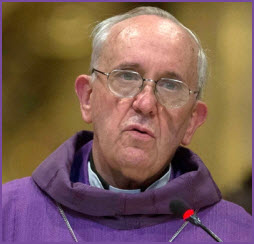(1) Productive work provides people with goods and services that actually improve their lives.
(2) It provides adequately for your needs and for the needs of your loved ones.
(3) Productive work makes you more capable while you’re doing it, and your labor more valuable.
(4) A primary goal in any community should be to help ensure that productive work is available to everyone who is willing & able to do it.
On this page, these 4 essentials have been my grounds for attacking un-productive work (such as contributing to the churn of consumer products no one needs), and challenging economic forces that inhibit or eliminate productive work (wherever that work is being done). Examples include these recent posts: Who Bears the Cost of Low Prices? and How Everyday Low Prices Hurt Us All, about why it’s in our interest for employees at the big-box stores we shop in to make “a living wage,” and What We Don’t Know Can’t Change Us, about how our consumption of “fast fashion” links us to recent manufacturing tragedies in Bangladesh.
It’s the essentials you commit yourself to—whatever they are—that drive not only your point of view but also the decisions you make about important issues.
It’s where you take a stand.
It’s where changing your life and work starts.

Affirming the essentials–our collective priorities–is equally important as we emerge from the economic setbacks of the past 5 years and try to regain our productivity as communities and as a nation. It is necessary too for great but crippled institutions that are trying to seize the future with clarity and purpose. This is why his bold affirmation of the essentials was the most significant part of the pope’s visit to Brazil last week.
Francis was thinking out loud about the foundations of the Catholic Church when he spoke to Brazil’s bishops last weekend. (The full text of his remarks can be found here.) He was trying to uncover the rock the Church was built on, buried beneath sex scandals, bureaucratic turf battles, and too many unhelpful words. His aim was to turn the tide on the Church’s increasing irrelevance.
Perhaps the Church appeared too weak, perhaps too distant from [people’s] needs, perhaps too poor to respond to their concerns, perhaps too cold, perhaps too caught up with itself, perhaps a prisoner of its own rigid formulas, perhaps the world seems to have made the Church a relic of the past, unfit for new questions; perhaps the Church could speak to people in their infancy but not to those come of age.
He advocated a new “grammar of simplicity” to address universal human needs, such as:
the loss of a sense of life’s meaning, personal dissolution, a loss of the experience of belonging to any ‘nest’ whatsoever, subtle but relentless violence, the inner fragmentation and breakup of families, loneliness and abandonment, divisions, and the inability to love, to forgive, to understand, the inner poison which makes life a hell, the need for affection because of feelings of inadequacy and unhappiness, the failed attempt to find an answer in drugs, alcohol, and sex, which only become further prisons.
And he gestured to the natural world of Brazil’s Amazon Basin, urging:
respect and protection of the entire creation which God has entrusted to man, not so that it be indiscriminately exploited, but rather made into a garden.
It is here, in a simple dialogue with these essentials, that “God always enters clothed in poverty, littleness.” (An earlier, related post about Francis’own simplicity can be found here.)
To recover faith, to find productive work, to live a fulfilling life: all begin by declaring the essentials.
Meaningful change never happens unless you start here.
